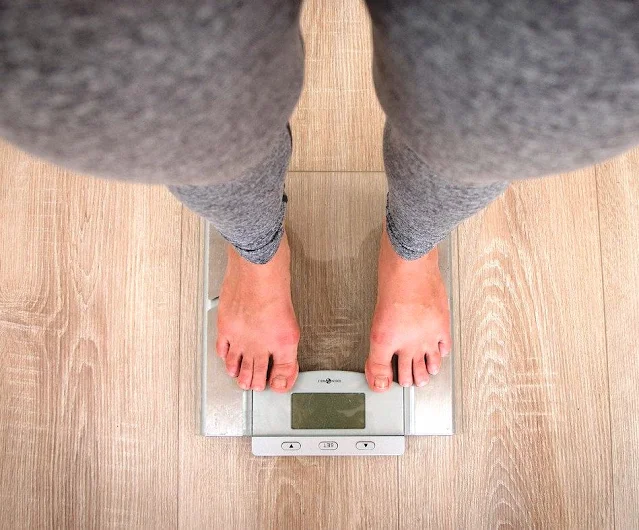What is
Intermittent Fasting? Intermittent fasting for weight loss, are there people who lose weight with an
intermittent fasting diet? What is Intermittent Fasting? How
is intermittent fasting done? One of the strategies that have become popular in
recent years is the intermittent fasting method.
 |
| What is Intermittent Fasting fasting for weight loss |
What is
Intermittent Fasting? Intermittent fasting for weight loss.
There are many
different ways to lose weight.
One of the
strategies that have become popular in recent years is the intermittent fasting
method.
Intermittentfasting is a diet that includes regular, short-term fasts or periods in which
little or no food is consumed.
Short-term
fasting helps people consume fewer calories. This can cause weight loss over
time.
However,
intermittent fasting may also help change risk factors for health conditions
such as diabetes and cardiovascular diseases, such as lowering cholesterol and
blood sugar levels.
If you want to
examine the benefits of intermittent fasting in detail, you can review our blog
post on the Evidence-Based Health Benefits of Intermittent Fasting.
Are there people
who lose weight with intermittent fasting? What are the intermittent fasting
hours? How many days is the intermittent fasting diet done? What
is Intermittent Fasting? This article explores everything
you need to know about intermittent fasting and weight loss.
It is just a
click away to reach the delicious menus in the diet list prepared for you by
our dieticians to lose weight healthily, in harmony with other meals of the
day, without waiting for the weight loss drugs to create a miracle ( Slimming
is One Click Away! ).
How is
Intermittent Fasting Done? How to Make Intermittent Fasting Diet? What to Eat
in the Intermittent Fasting Diet? What is Intermittent Fasting?
There are several
different methods of intermittent fasting. The most popular include:
Alternate Day Fasting (ADF) - What is Intermittent Fasting?
All methods can
be effective, but finding out which works best is up to the person.
To help you
choose the method that fits your lifestyle, we explain the pros and cons of
each here.
What is
Intermittent Fasting? , intermittent fasting method is one of the most popular
intermittent fasting methods for weight loss.
The plan limits
food consumption and calorie-containing beverages to a specific time window of
8 hours per day. The remaining 16 hours of the day require avoiding food.
While other diets
can set strict rules and regulations, the method is a time-restricted diet
(TRF) model and flexible.
You can choose
any 8-hour time frame for consuming calories.
Some people
prefer to skip breakfast and have a time frame from 8 pm to 8 pm, while others
avoid late meals and stick to a 9 am to 5 pm schedule.
Limiting the
number of hours you can eat during the day can help you lose weight and lower
your blood pressure.
Studies show that
time-restricted diets such as the method can prevent hypertension and cause
weight loss by reducing food consumed.
A survey
conducted in 2021, when combined with resistance training, reduced the fat mass
in male participants and found that it helps maintain muscle mass.
A more recent
study found that the method did not impair muscle or strength gains in women
who did resistance training.
While the method
can easily fit any lifestyle, some people may find it difficult to avoid eating
16 hours.
Additionally, eating
too many snacks or junk food in your 8-hour window can counteract the positive
effects of intermittent fasting.
To maximize this
diet's potential health benefits, be sure to consume a balanced diet consisting
of fruits, vegetables, whole grains, healthy fats, and protein.
For a more
detailed review, you can visit our blog post titled What is Intermittent
Fasting.
Simple intermittent fasting plan - What is Intermittent Fasting?
You normally eat
five days a week and do not restrict calories. Then, on the other two days of
the week, you reduce your calorie intake to a quarter of your daily needs.
For someone who
regularly consumes 2,000 calories a day, reducing their calorie intake to just
500 calories per day, two days a week.
According to a
2021 study, the diet is just as effective as daily calorie restriction for
weight loss and blood sugar control among people with type 2 diabetes.
Another study
found that the diet was as effective as continuous calorie restriction for
weight loss and prevention of metabolic diseases such as heart disease and
diabetes.
The diet provides
flexibility in choosing which days to fast, and there are no rules for what or
when you should eat on full-calorie days.
However, it's
worth noting that eating "normal" on full-calorie days does not give
you the right to eat whatever you want.
Limiting yourself
to just 500 calories a day is not easy, even if it's just two days a week.
Also, consuming too few calories can make you feel sick or unconscious.
The diet may be effective,
but it is not suitable for everyone. Talk to your doctor to find out if the
diet is right for you.
Important Link: Tips for working from home for a good start day!
For a more
detailed review, see What is Intermittent Fasting? You can review our blog post
on the subject.
Eat Stop Eat - What is Intermittent Fasting?
This intermittentfasting plan involves setting one or two non-consecutive days per week on which
you avoid eating over 24 hours.
You can eat
freely for the rest of the week, but it is recommended that you eat a versatile
diet and avoid excessive consumption.
The rationale
behind a 24-hour weekly fast is that consuming fewer calories will result in
weight loss.
Fasting for up to
24 hours can lead to a metabolic change that causes your body to use fat as an
energy source instead of glucose.
But avoiding food
for 24 hours requires a lot of willpower and can lead to overconsumption later
on.
More research on
the Eat Stop Eat diet is needed to determine its potential health benefits and
weight loss properties.
Before trying the
Eat Stop Eat method, talk to your doctor to see if this is an effective weight
loss solution for you.
For a more
detailed review, you can visit our blog post titled Fast Weight Loss from
Intermittent Fasting to Eat Stop Eat Diet.
Alternate Day Fasting - What is Intermittent Fasting?
You fast every
two days on this diet, but you can eat whatever you want on non-fasting
days.However, other versions eliminate calories on fasting days.
The weight-loss
benefits of fasting every other day have been proven.
A randomized
pilot study comparing daily fasting with daily calorie restriction in adults
with obesity found that both methods were equally effective for weight loss.
If you want to
maximize weight loss, adding an exercise regimen to your life can help.
Studies show that
combining alternate day fasting with endurance exercise can result in twice as
much weight loss than simply fasting.
Complete fasting
every day can be extreme, especially if you are starting to fast. Eating
excessively on non-fasting days can also be tempting.
Important Link: 7 practical tips how to start a conversation
If you are new to
intermittent fasting, start fasting alternate days with a modified fasting
plan.
Whether you start
with a modified fasting plan or start with a quick introduction, it's best to
maintain a nutritious diet that includes high-protein foods and low-calorie
vegetables to help you feel full.
 |
| What is Intermittent Fasting? | fasting for weight loss |
The Warrior Diet - What is Intermittent Fasting?
The Warrior Diet
is an intermittent fasting plan based on the dietary patterns of ancient
warriors.
It involves
eating very little food for 20 hours during the day and then eating as much
food as you want during a 4-hour window at night.
The Warrior Diet
encourages dieters to consume small amounts of dairy products, boiled eggs, raw
fruits, and vegetables, as well as calorie-free fluids during the 20-hour
fasting period.
After this
20-hour fast, people can eat whatever they want for 4 hours, but unprocessed,
healthy, and organic foods are recommended.
While there is no
research specifically on the Warrior Diet, human studies show that
time-restricted eating cycles can cause weight loss.
Time-limited
nutritional cycles may have a variety of other health benefits. Studies show
that time-restricted feeding cycles can prevent diabetes, slow tumor
progression, delay aging and extend life expectancy in rodents.
More research is
needed on the Warrior Diet to understand its benefits for weight loss fully.
The Warrior Diet
can be difficult to follow as it limits significant calorie consumption to just
4 hours a day. Overconsumption at night is a common problem.
The Warrior Diet
can also lead to irregular eating habits. Talk to your doctor to see if it's
right for you.
For a more
detailed review, What is Intermittent Fasting?, How to
Make a Warrior Diet?, You can visit our blog post titled IF Diet Warrior
Method.
Summary: There are many types of
intermittent fasting, each with its benefits and challenges.
If you want to
look for diet lists that are extremely restrictive and harmful to health, such
as a diet list that loses 10 pounds in 1 week on all websites, and if you want
to lose weight by stepping into a healthy and balanced diet instead of making
unhealthy and fast weight loss diets, buy the diet lists prepared by our
dieticians for you with the appropriate diet fee. Don't delay! Start Weight
Loss Now! )
What is
Intermittent Fasting?
How Does Intermittent Fasting Affect Your Hormones?
This is because
body fat is the body's way of storing energy (calories).
When you don't
eat anything, your body makes a few changes to make its stored energy more
accessible.
Examples include
changes in nervous system activity and major changes in the levels of several
important hormones.
Insulin. Insulin
levels increase when you eat and decrease significantly when you fast.
Norepinephrine
(noradrenaline). Your nervous system sends norepinephrine to your fat cells,
converting body fat into free fatty acids that can burn for energy.
Interestingly,
short-term fasting can increase fat burning, despite what advocates of eating
5-6 meals a day claim.
Studies show that
alternate-day fasting trials lasting 3-12 weeks and full-day fasting trials
lasting 12-24 weeks reduce body weight and body fat.
Changing another
hormone during fasting levels ranging up to five times the human growth hormone
(HGH).
Previously, HGH
was believed to help burn fat faster, but new research suggests that the brain
saves energy, potentially making it harder to lose weight.
By activating a
small agouti-associated protein (AgRP) neuron population, HGH can indirectly
increase appetite and reduce energy metabolism.
Summary: Short-term fasting leads to a
variety of bodily changes that promote fat burning. However, rapidly increasing
HGH levels can indirectly reduce energy metabolism and combat sustained weight
loss.
Intermittent Fasting Diet Helps You Reduce Calories and Lose Weight
Losing weight
with intermittent fasting: The main reason intermittent fasting works for
weight loss is that it helps you eat fewer calories. (What is
Intermittent Fasting? And How Many Calories Should I Eat To Lose
Weight A Day? For Men And Women )
The different
protocols all involve skipping meals during fasting periods.
If you do not
compensate by eating a lot more during the eating periods, you will consume
fewer calories.
According to a
2020 review, intermittent fasting decreased body weight by 3-8% over 3-24
weeks.
When examining
the weight loss rate, intermittent fasting can result in a weight loss of about
0.25–0.75 kg per week.
People also
experienced a 4-7% reduction in waist circumference, suggesting that they lost
belly fat.
These results
suggest that intermittent fasting can be a useful weight-loss tool.
However, the
benefits of intermittent fasting go beyond weight loss.
It also has
numerous benefits for metabolic health and may even help reduce the risk of cardiovascular
disease.
While counting
calories is not usually necessary when fasting, weight loss is mostly mediated
by an overall calorie intake reduction.
Summary: Intermittent fasting is a
convenient way to lose weight without counting calories.
Intermittent Fasting Can Help You Maintain Muscle Mass During Diet
Interestingly,
some research has shown that intermittent fasting can help preserve muscle mass
while losing body fat.
A scientific
review found that intermittent calorie restriction resulted in a similar amount
of weight loss to sustained calorie restriction, but with a much smaller muscle
mass reduction.
In calorie
restriction studies, 25% of weight lost was muscle mass, compared with only 10%
in intermittent calorie restriction studies.
However, these
studies had some limitations, so they should view the findings with skepticism.
More recent studies have not found any difference in lean mass or muscle mass
with intermittent fasting than other types of eating plans.
Summary: While some evidence suggests that
intermittent fasting may help you retain more muscle mass than standard calorie
restriction, more recent studies have not supported this idea.
Intermittent
Fasting Facilitates Healthy Eating
For most people,
one of the main benefits of intermittent fasting is its simplicity.
Instead of
counting calories, most intermittent fasting regimens only require you to tell
the time.
The best diet for
you is the one you can stick with over the long term.
Summary: One of the main benefits of
intermittent fasting is that it facilitates healthy eating. This can make it
easier to stick to a healthy diet in the long term.
What is
Intermittent Fasting?
How to Be Successful with the Intermittent Fasting Method?
If you want to
lose weight with intermittent fasting, there are a few things to keep in mind:
Food quality. The
food you eat still matters. Try to eat mostly unprocessed, single-ingredient
foods.
Calorie. Calories
still count. Try to eat normally when you're not fasting, not enough to make up
for the calories you missed while fasting.
Consistency. As
with any other weight-loss method, you have to stick to it for a long time if
you want it to work.
Patience. It may
take some time for your body to adapt to the intermittent fasting method. Try
to be consistent with your cooking schedule.
Many of the
popular intermittent fasting methods also recommend exercise such as strength
training. This is very important if you want to burn mostly body fat while
preserving muscle mass.
Initially, counting
calories is generally not necessary when using intermittent fasting. However,
if your weight loss comes to a halt, counting calories can be a useful tool.
Summary: While fasting, if you want to lose
weight, you need to eat a healthy diet and maintain a calorie deficit.
Long Talk Short - What is Intermittent Fasting?
Intermittent
fasting can be a useful weight-loss tool.
The associated
weight loss is primarily due to a reduction in calorie intake, but some
beneficial effects on hormones may also come into play.
While
intermittent fasting is not for everyone, it can be quite beneficial for some
people.
In this article What is Intermittent Fasting?, If you want to lose weight and reach a healthy body regardless of intermittent fasting or whatever diet you adopt, you can start by creating a healthy diet instead of waiting to lose weight with various weights loss cures. If you say you want to lose weight by stepping into a healthy and balanced diet, buy the diet list, which is created by calculating the macro and micronutrient values you need to take daily,






